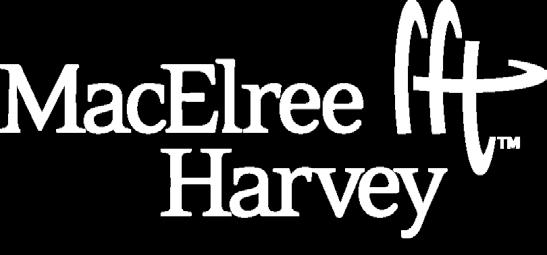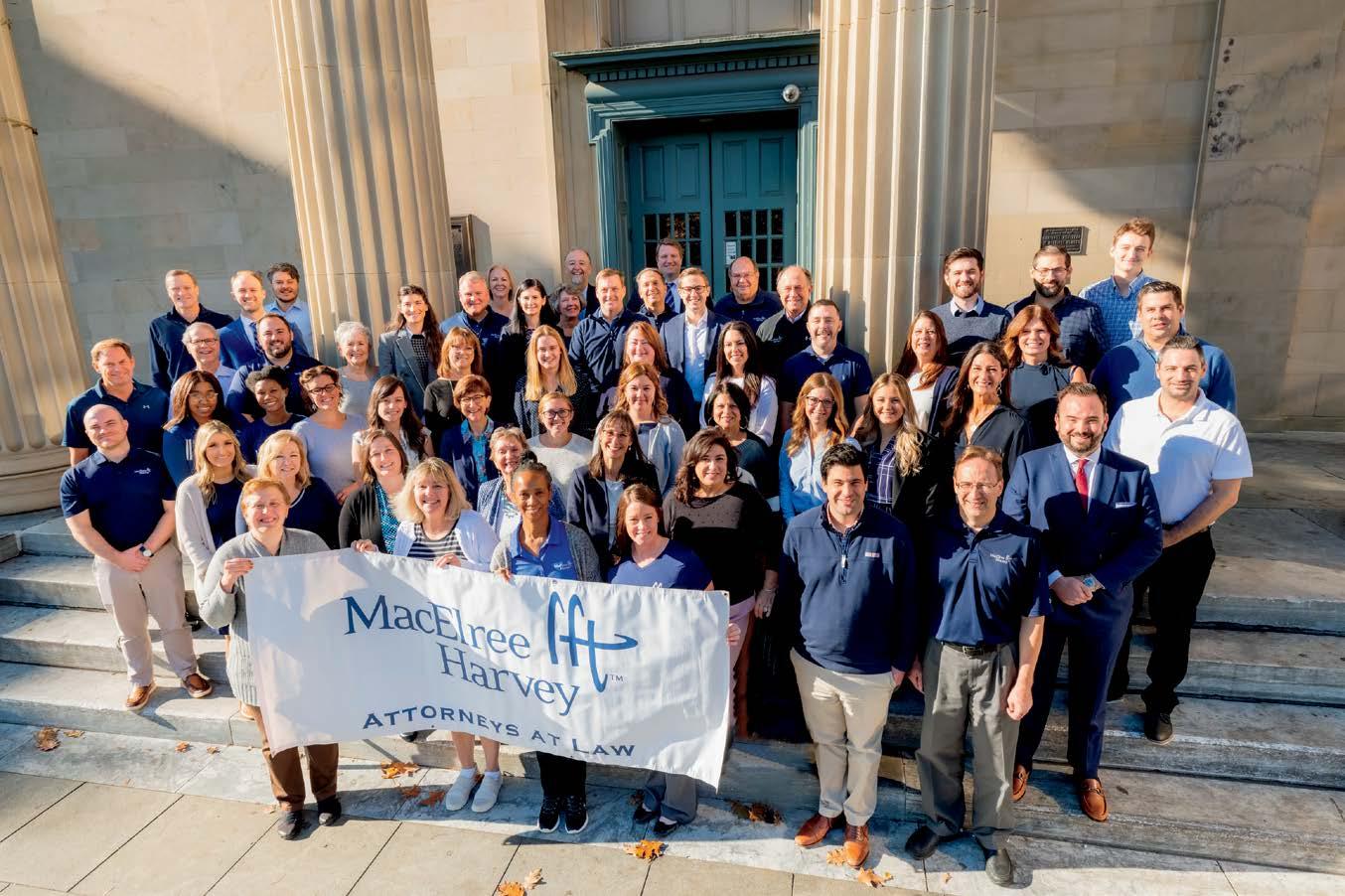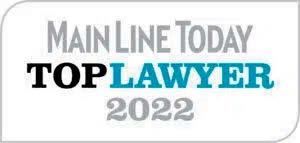














Michelle Bernardo-Rudy, President
L. Nagle, Vice President Donald Lynn, Jr., Treasurer James Doyle, Secretary
Maria Janoski, Editor Rami Bishay Mark Blank, Jr. Ryan Buchanan Charles T. DeTulleo Jennifer Fink Andrew Lehr Shannon McDonald John McKenna Kim Denise Morton Mary Wade Myers Sara Planthaber Karyn L. Seace Bill Wilson
Matt Holliday Executive Director Rachel Prince Communications, Events, and Marketing Manager
The Chester County Bar Association’s quarterly publication, New Matter, has been provided to Bar Association members for four decades.

aspect of CCBA’s membership, New Matter aims to provide our members

information pertaining to current issues
the practice of law,
legal education
Bar Association
legal issues,
programs, meetings, functions, practice tips, procedures for attorneys, and items of personal
our membership.
The opinions expressed in this material are for general information only and are not intended to provide specific legal or other advice or recommendations for any individuals. The placement of paid advertisements

not imply endorsement by the Chester County
Association.
All rights reserved. No portion of this publication may be reproduced electronically or in print without the expressed written permission of the publisher or editor.
Bench Bar
are Worth
Limits Landlords’
to Shift Risk to Snow Removal Contractors.
Illness
Its Impact
Child Custody in the Wake of COVID-19
Establishing
Culture
Chester
PUBLISHER:


This is my last article as Chester County Bar Association President. It has been an honor to serve in this role and to learn from this group over the past year. It has been an amazing and fun year. In this last quarter, we had our Bench Bar Conference in beautiful, historic Alexandria, we celebrated our members in October for Member Appreciation Week, we had a Pro Bono Reception honoring all of those who give tirelessly of their time and money to support the great work the Bar Foundation does for the community, we will hold the Veteran’s Day Ceremony on November 11th, and we look forward to the Annual Meeting in December where we will welcome our incoming President, Brian L. Nagle, Esquire.
We held the Bench Bar in Alexandria September 29th to October 1st. It was a great event, despite Hurricane Ian threatening for the last day and a half of the conference. We had to change up some plans for the cocktail hour due to the rain, but we made it work. In following with my Wellness Initiative, our first speaker on Friday morning was Lisa Wright Bryant. She was energetic and uplifting as she discussed Imposter Syndrome, what it means and why so many attorneys and other professionals suffer from this issue. We also found ourselves in the very stressful situation of having the second speaker, Chief Counsel for ICE, cancel due to his young child sustaining an injury at daycare. I watched as our fearless Bench Bar Committee Chair, Andrea Pettine, figured out how to pivot and explain the situation to the room of attorneys waiting for the CLE. We went on to spend an hour discussing real life stress relief tips and how to make do with what we are handed, which, in our jobs can be A LOT! It occurred to
me that most people in that room truly have a certain level of resilience and grit. Lawyers from all levels of experience and practice areas bonded over the one thing we can all relate to – stress. We had a great Judges’ Panel and Break Out sessions, as well. We also had many sponsors make the trip to provide support and highlight their services. I urge you to consider utilizing their services in the future.
My journey to being President began when I joined the bar in 2002. Over my twenty-year tenure with the bar, I served as Chair of the YLD, and sat on the boards for the Bar Foundation and the bar association. I have been involved in fundraisers, committees, and many other aspects of this association. This past year, I have also spent time with my counterparts in the surrounding counties. I realize what an outstanding Bar Association we have. We pull together, we can have civil discourse and still move forward for the good of the order. I have had a great deal of support from the members of our bar throughout the year. It has been humbling, to say the least. I have found my people through this association. Truly, some of my closest friends are such because of the time we spent participating in the many social activities the bar has to offer. We have seen growth in the number of members this year, as well as money raised for our foundation. We have a great community of lawyers, and I am proud I was able to serve as its leader for a year.
Membership in this organization provides many things, not the least of which can be personal and professional growth. We have come a long way in that regard, but I think we can do more. When we met for our board retreat, we established goals to help make the bar association better for the membership in years to come. We seek to increase diversity and inclusion, and provide more quality programs for CLE and social events alike, to name just a few. I hope to see the Bar Association continue to grow into a forum for our members to seek out assistance, advice or simply a lunch to catch up with a colleague.
To the young lawyers, I offer this advice: You will experience situations that will throw you off your track or the path you thought you were supposed to be on. Sometimes, you get back on that track, other times, you do not. But it is o.k. You will get to where you are supposed to be when the time is right. The important thing is you remain resilient enough to recognize that you can overcome the obstacle and not only carry on, but flourish in a way that may be completely unexpected.
To our more seasoned lawyers, while I dare not feign to think I am worthy of offering you advice, but I am going
to anyway: Do not ever underestimate your contribution to this bar and the experience that you have to offer to the rest of us. We need it. We look for it and I, for one, embrace it.
I want to thank Matt, Genya, Lauren, Rachel, Meredith, and Tyler for all their hard work and support throughout the year. While I will still be around bugging you next year, I will not require as much from you. Thank you to the board for showing up and helping when needed. To past Presidents John Fiorillo, Patrick McKenna, Christine Zaccarelli, Don Kohler, Sam Cortes and Andrea Pettine, thank you for your guidance and advice as I navigated this year. Thank you to Rami Bishay for graciously accepting my offer to fill in for a year on the board. Thank you to Stacey Fuller for letting me bend your ear.
Finally, I leave you all with these words – Be Kind – to yourself and to others. Be Well. Take a step back and look at the sunset or the sunrise, if you are one of those “morning people,” and embrace the good, the bad and the ugly. It is all a part of what makes you who you are, and it will shape who you are meant to become, no matter where you are in life.
THANK YOU all for the opportunity to serve as your 2022 President of this wonderful association!
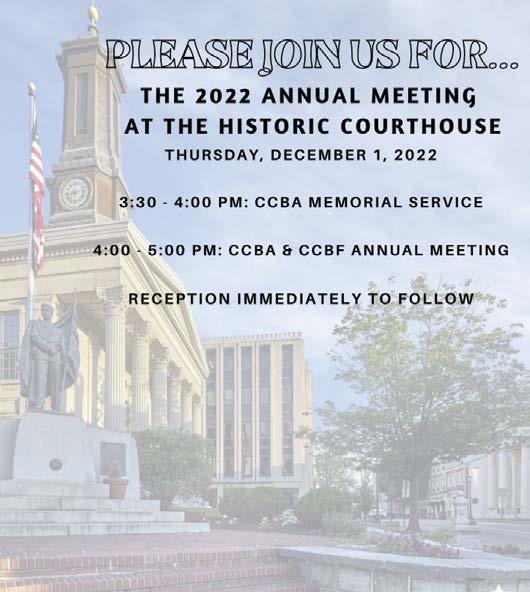
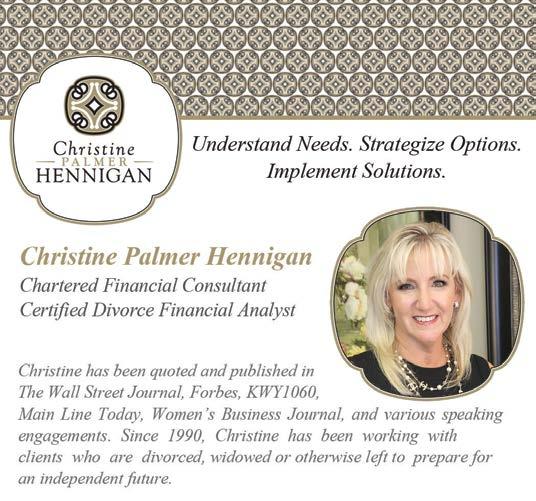

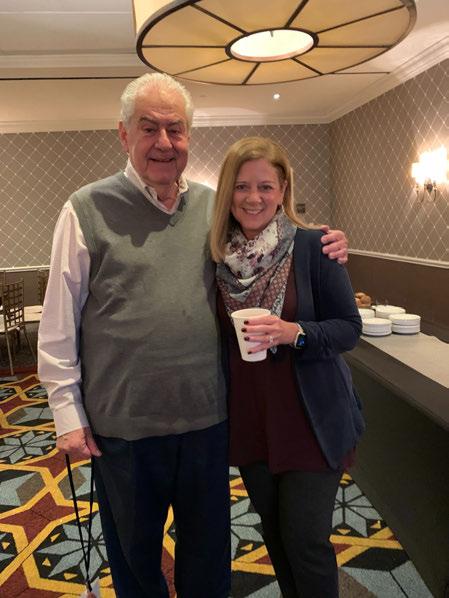

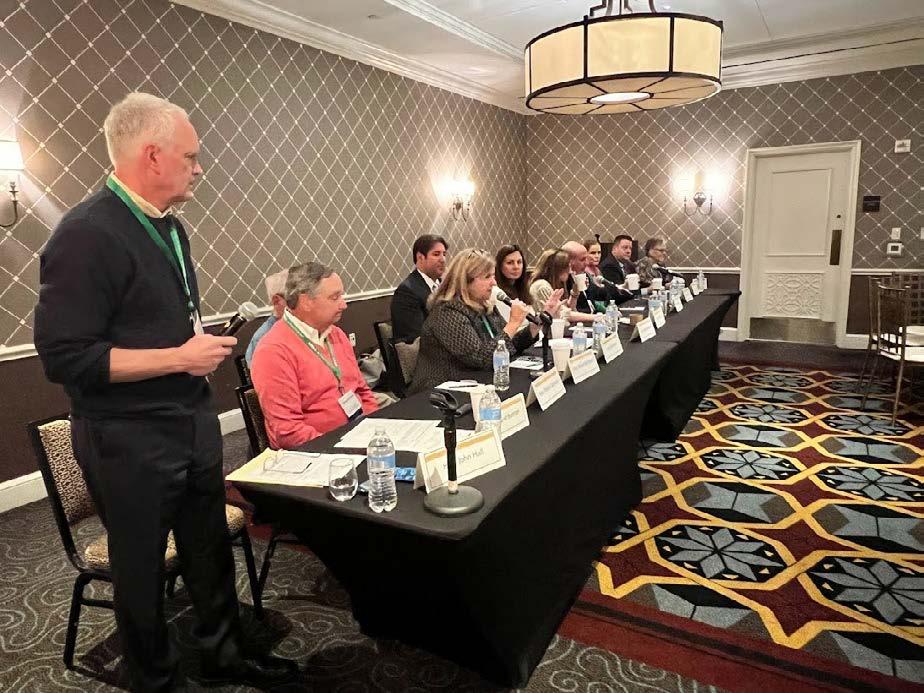
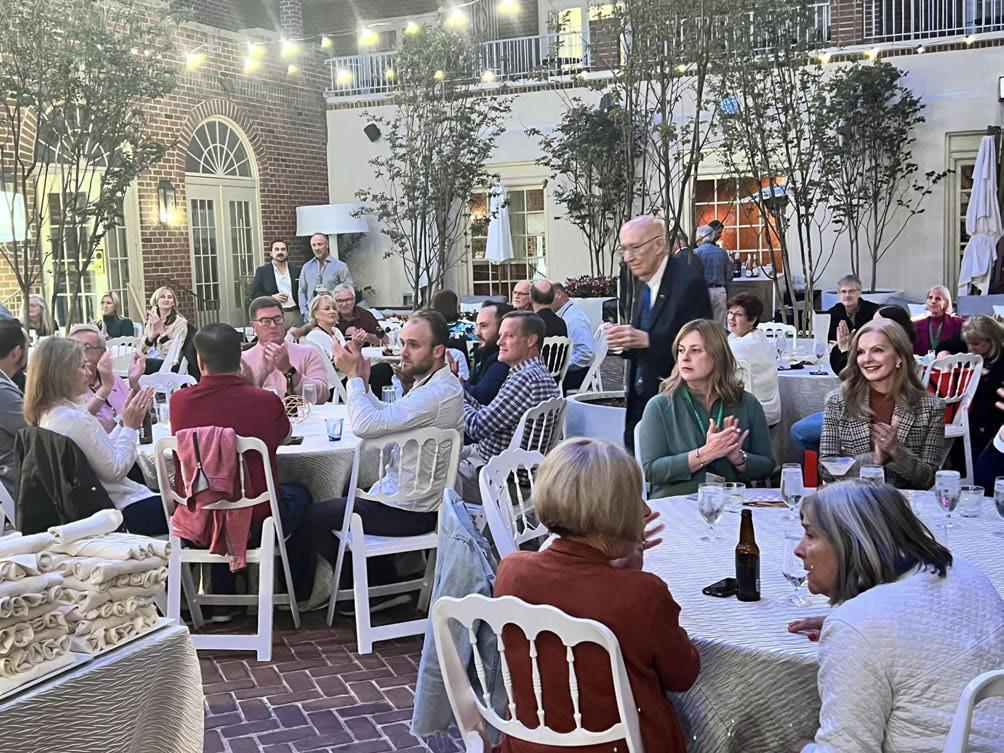

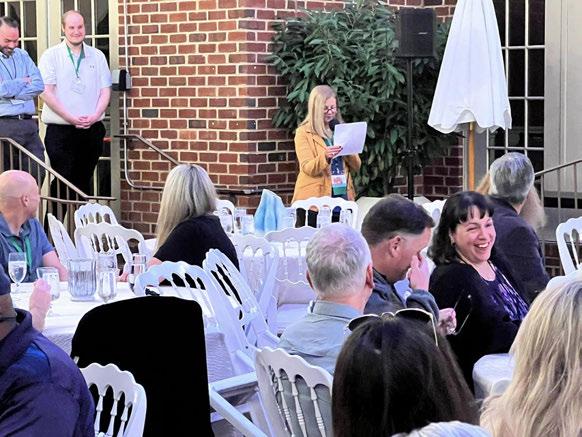
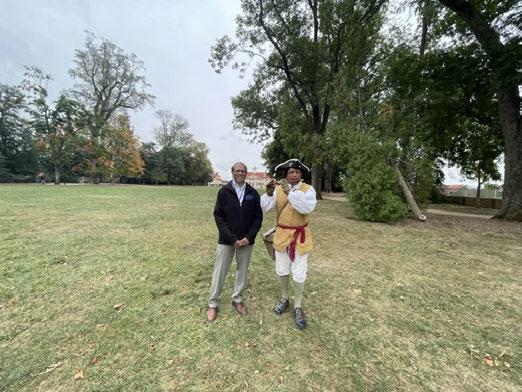

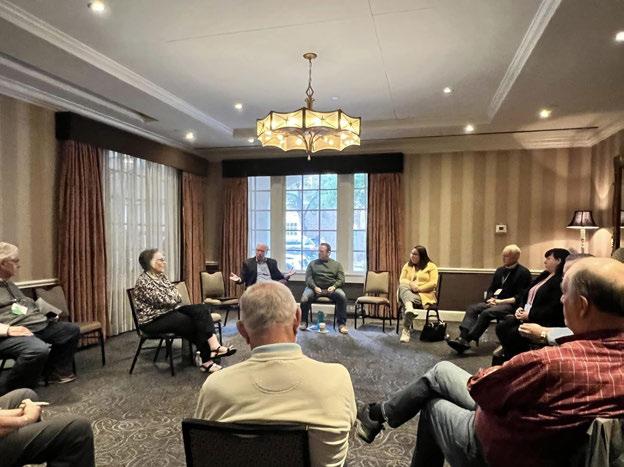
OnJuly 11, 2022, Pennsylvania passed Act 68, which limits the reach of indemnification (or “hold harmless”) agreements in snow and ice removal contracts. As winter approaches, the new law presents questions for snow removal contractors, property owners, and insurance carriers alike.
Under Act 68, any indemnity clause that makes a snow removal contractor liable for any part of a service receiver’s (i.e. landlord’s) negligence is void if the receiver “affirmatively directed” the contractor not to remove snow. This makes broad form indemnity agreements (which require contractors to indemnify property owners for injuries arising out of their work, even when the owner bears sole responsibility) ineffective in situations where the owner has specifically directed the contractor not to remove snow.
For example, many snow removal contracts require the contractor to clear snow after two inches of snowfall. Before Act 68, even if it snowed less than two inches or where it was unclear when two inches of snow had accumulated, a broad form indemnity agreement arguably would have made the contractor liable for any injuries on the owner’s premises during a storm. Now, after Act 68, if a snow removal contract only triggers after two inches of snowfall, the contractor would not need to indemnify
the property owner for injuries during smaller storms. Since the two-inch trigger contract specifically directed the contractor not to plow snow under two inches, Act 68 would void the broad form indemnity clause.

Supporters of Act 68 believe it will ultimately reduce insurance rates in the snow and ice management industry. State Representative Christopher B. Quinn reasons Act 68 will make it easier for snow removal contractors to find insurance and lower premiums while also incentivizing property owners to keep their property safe. The Accredited Snow Contractors Association agrees, claiming property owners neglect their premises and use broad form indemnity clauses to unfairly shift liability onto snow removal contractors.
Nonetheless, Act 68 may create disputes among snow removal contractors, property owners, and insurance carriers over whether contract trigger language “affirmatively direct[s]” a contractor not to act. Contractors and property owners should review their service contracts, and insurance carriers should evaluate whether Act 68 impacts their clients’ indemnity agreements.
Attorney Stephen R. McDonnell is a litigator at Gawthrop Greenwood, PC. Contact Steve at smcdonnell@gawthrop.com or 610-696-8225. https://gawthrop.com

TheCOVID-19 pandemic has resulted in a rise in mental illness and increasingly severe actions taken by those suffering from it. This increase in mental health concerns is playing out more and more frequently in family court, as parents address their mental health, their co-parent’s mental health, and the mental health of their children. So how does mental illness in your client, in the opposing party, and in children affect the Court’s rulings on child custody and analysis of what is in the best interests of the child?
Pennsylvania courts review and balance 16 factors when they analyze what is in the “best interest of the child” for custody. Factor 15 directly addresses the mental and physical condition of a party or a member of a party’s household.

Beginning with custody conciliation, a Conciliator will raise the issue of the parties’ mental health concerns and how they are being addressed. How the mental health issue has arisen will impact the Court’s analysis. For example, if a client has a chronic condition or diagnosis, but is and has been managing it through therapy, medication, and healthy practices, the Court will generally look favorably upon the steps the client has taken and will factor that stability into their decision. If, however, a matter has come to the court under an Emergency Petition for Custody

for a crisis that has occurred with one of the parties, it will be more inclined to decrease that party’s custodial time until the crisis is resolved and stability is re-established and maintained.
If your client is suffering from mental illness, the first — and most important — step is to get them into treatment, if they are not already. Whether this involves regular talk therapy, medication, or less traditional forms of therapy, the Courts want to see that a parent is taking their mental health seriously and working to maintain it. If a client is not already in treatment, this can be a difficult proposition, particularly if the client is minimizing any disorder they might have. As counsel, you must impress upon the client the importance of taking their mental health seriously, not just for the client’s sake but for the child’s sake. The Court will not award custody or increase custody for a party with a demonstrated mental health disorder if they are not actively engaged in treatment for that disorder, particularly if that disorder is interfering with the party’s ability to parent.
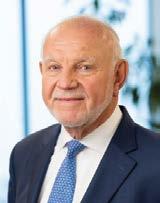
One thing to be especially cautious about when it comes to mental health assessments ordered by the Court is to make certain that your client follows the Court’s instructions specifically. Often, clients will assume that an assessment by their current therapist will satisfy any conditions of the Court. This is often not true, and the Court will have an independent group that they will want to have perform an assessment. The Court may also have a preference as to whether a client should see a psychologist versus a psychiatrist. Whatever the condition imposed, and even if it appears to be redundant, the client must get whatever assessments and/or treatment may be ordered by the Court.
The best interest of the child is the legal baseline for the Court’s assessment and is of primary concern with regard to the child’s mental health. As with your own client, if an opposing party is neglecting their mental health, the Court will take that neglect seriously. As counsel, you will want to request documentation of any current mental health treatment, including current records of therapeutic sessions and medication, if there are any. If the disorder is chronic, you will also want to request past treatment records, to track whether the opposing party has been consistently maintaining treatment or whether any particular triggers jump out. These are issues that you can address with the Court at conciliation or within co-parenting counseling.
When analyzing what is in the “best interest of the child,” Pennsylvania courts consider Factor 14, which addresses the history of drug or alcohol abuse of a party or a member of the household.
A recent study showed that during COVID-19, participants reported consuming alcohol on an average of 12.2 days and 26.8 alcohol drinks over the past 30 days. Over one-third (34.1%) reported engaging in binge drinking and 7% reported engaging in extreme binge drinking. Those participants, who reported being very or extremely impacted by COVID-19,
consumed more alcohol (including both on more days and more total drinks) in the past 30 days. Moreover, nearly two-thirds of the participants reported that their drinking had increased compared to their consumption rates prior to COVID-19. Reasons for this increase were increased stress, increased alcohol availability, and boredom.
The Court is well aware of these trends. Attorneys in multiple practice areas are reporting significant increases in incidents of substance abuse and the severity of mental illness among their clients. Treatment for substance abuse must be addressed, particularly if drugs and/or alcohol are being used by a client to self-medicate for mental illness.
It should be noted that while the most important step in coping with mental illness is recognizing the issue, finding therapeutic options is also key – and that is a major hurdle at this point in the pandemic. Many therapists are currently overwhelmed with clients. If you don’t already have a resource to offer clients, attorneys and clients can draw upon the respective county websites for Chester, Delaware, and Montgomery. Each site enables you to search the term “mental health,” and you’ll be directed to county resources for therapy or for those in crisis.
On a broader level, the federal government is working to implement a nationwide mental health hotline 988, instead of 911, to provide more nuanced help and support for those experiencing a mental health crisis. Dialing 988 will connect callers to the National Suicide Prevention Hotline. Regardless of the diagnosis, and whether there are co-occurring substance abuse issues, to protect the interests of your client in a custody case it is vital to identify any mental health issues. While you cannot force a client to engage in treatment, you must make them aware of how the Court will view a lack of engagement and work with them to establish a treatment plan. An effective treatment plan will not only help your client personally, but will strengthen their position in custodial matters.
With 15 years of litigation experience in the Chester County Court system, attorney Kelly A. Jurs practices in family law as well as criminal defense at Gawthrop Greenwood, PC in West Chester. She is a member of the Pennsylvania Council of Mediators. Contact Kelly at kjurs@gawthrop.com or 610-696-8225. https://gawthrop.com
Asthe American workforce continues to be dispersed in a hybrid work environment, the impact on company culture cannot be ignored. With workers less likely to see their connection to the mission and values of the company when working remotely, business leaders have a challenge that needs to be addressed.

This is equally true when looking at the organization’s culture of health. Traditionally, wellness programs have targeted specific employee health risks such as being overweight, smoking or not exercising enough. Although these programs are worthy endeavors and have proven successful in the past to varying degrees, there is a fair amount of disagreement today over their effectiveness. Wellness programs alone are simply not enough. There is much more that can be done to effect greater change. Establishing a culture of health in the workplace can be a great place to start.
To establish a culture of health in the workplace is to create an atmosphere that values health and supports health improvement among employees. And to do so requires a substantial effort from ownership and management which, if done properly, permeates throughout the organization from top to bottom. Developing a strategy to effect this change is critical, and the overall process could take several months or more to implement.
The Chester County Bar Association offers its members access to My Benefit Advisor as a solution for employee benefits, including voluntary offerings.

For more information about My Benefit Advisor, visit our website at ccba.mybenefitadvisor.com or contact Christopher Sloane at (610) 684-6933.



 By Mark Blank, Jr., Esquire
By Mark Blank, Jr., Esquire
Justice Thomas appears to be (or, better yet, actually is) in favor of overruling the entire set of legal principles that are termed: “substantive due process rights”; “substantive due process”; “substantive rights”; “substantive due process of law.” The foregoing is the rule of law underlying much of the decision in Roe that abortion is a right, albeit a substantive one, that is protected by the Due Process Clause of the Fourteenth Amendment.
Inoverruling Roe v. Wade, 410 U.S. 113 (1973) and Planned Parenthood of Southeastern Pennsylvania v. Casey 510 U.S. 833 (1992), the SCOTUS held that Roe v. Wade was wrongly decided. Dobbs v. Jackson Women’s Health Organization, No. 19-1392, 592 U.S. (2022). (See, The Blank Page, New Matter, 3rd Quarter 2022.) Among numerous other things, the Court emphasizes that there is nothing mentioned of abortion in the Constitution. The Majority refers to Roe v. Wade as an “abuse of judicial authority” and as being “egregiously wrong from the start.” The Court further describes the reasoning in Roe as being “exceptionally weak,” Dobbs, Slip Op. 5-6, and that “ ...the Fourteenth Amendment does not protect the right to abortion.” Id. It is on this latter point that Justice Thomas enters his appearance. (Dobbs, Thomas, J., concurring.)
Substantive due process has a myriad of definitions. But in its narrowest sense (if it is at all possible to narrow it down), substantive due process refers to those fundamental rights (not specifically mentioned in the Constitution) that are implicit in the concept of “ordered liberty” or are deeply rooted in the Nation’s history and traditions. Duncan v. Louisiana, 301 U.S. 145 (1968).
“A [substantive] right is among those fundamental principles of liberty and justice which lie at the base of our civil and political institutions.” Duncan, 301 U.S. 145, 148 (1968) (cited in Dobbs, Slip Op. 12). And in Palko v. Connecticut, 302 U.S. 319 (1937), the Court describes substantive due process as “a principle of justice so rooted in the traditions and conscience of our people as to be ranked as fundamental.” Palko vs. Connecticut, 302 U.S. 319, 325 (1937), citing Snyder v. Massachusetts, 291
“You know, some day we are going to get enough people on the Supreme Court to change that law.” Seinfeld, “The Couch,” Fifth Episode of the Sixth Season (1994).
U.S. 97, 105 (1934) (quoted in Dobbs, Slip Op.12).
The Majority in Dobbs states that “ . . . procuring an abortion is not a fundamental constitutional right because such a right has no basis in the Constitution’s text or our Nation’s history . . .” Dobbs, Slip Op. 77; ref: 8-39. Justice Alito, for the Court, emphasizes that the Court’s conclusions apply only to abortion: “Nothing in this opinion should be understood to cast doubt on precedents that do not concern abortion.” Dobbs, Slip Op., 66. I interpret this to mean that the Court is not this day considering cases and precedents that have recognized other substantive rights, but does not preclude such consideration on some other day.
Justice Thomas, however, cuts to the chase (Dobbs, Thomas, J., concurring). The Justice has other ideas about which he is blatant. In so many words and phrases, Justice Thomas rejects the entire concept of substantive due process.1 In his analysis, he cites (and/or quotes) himself no fewer than on eighteen occasions.
Justice Thomas is of the view that the Due Process Clause means only process: “The notion that a constitutional provision that guarantees only ‘process’ before a person is deprived of life, liberty or property could define the substance of those rights strains credulity for even the most casual user of words.” Dobbs, Thomas, J., concurring, Slip Op. 2, citing Macdonald v. Chicago, 561 U.S. 742, 811 (2010) (Thomas, J., concurring in part and concurring in judgment). Moreover, substantive due process, according to the jurist, is “an oxymoron that lacks any basis in the Constitution.” Dobbs, Thomas, J., concurring, Slip Op. 2 (citations omitted). “Because the Due Process Clause does not secure any [emphasis in the original] substantive rights, it does not secure a right to abortion.” Id.
Justice Thomas concludes his concurrence with a brief, yet concise, summary of his exposition: “Accordingly, we should eliminate [substantive due process] from our jurisprudence at the earliest opportunity.” Dobbs, Thomas, J., concurring, Slip Op. 7.
If Justice Thomas has any influence on the other four Justices in the Dobbs Majority2, the Court could repeat
itself (Dobbs is now a superprecedent), however, in contexts other than abortion.
Constitutional jurisprudence, going back to its very beginnings, is all about interpreting the Constitution regarding factual scenarios surrounding cases and justiciable controversies which have reached the United States Supreme Court for adjudication. See: Marbury v. Madison, 5 U.S. 137 (1803). If substantive due process, as a legal concept, is abolished from SCOTUS jurisprudence, as at least one Justice would have it, such a step could affect the entire framework of Constitutional law.
Take, for instance, the Privileges and Immunities Clause (Constitution, Article Four Section Two; Amendment XIV). The Thomas Court might interject on it as well. For example, the Court has declared that there is a Constitutional right to interstate travel; such a privilege, although not mentioned in the Constitution, is implicit in it. Shapiro v. Thompson, 394 U.S. 618 (1969); cf. Dunn v. Blumstein, 405 U.S. 330 (1972).
If and when an issue arises as to banning (even criminalizing) travel to a sister state to obtain an abortion, Shapiro and Dunn will be in the spotlight (or the arena) and shall be scrutinized. Perhaps the Court could circumvent the issue by maintaining (as the Court has in Dobbs) that abortion is unique and, thus, distinguishable from the right to vote in state elections (Dunn) or the privilege of receiving state benefits (Shapiro).
If any of this is brought before SCOTUS, it will be interesting, to say the least, to view the separate opinion of Justice Thomas.3
Perhaps I am making matters more complicated than they already are. But we are lawyers, and that is our privilege, immunity and substantive (as well as our procedural) right. Is this not what our lives are all about?
1Examples of rights that the Court has held to be substantive include (but are not necessarily limited to): marriage; procreation; privacy; intimacy; sexual relations; choice of partners, just to name a few.
2Chief Justice Roberts concurred in judgment, but distanced himself from the decision to overrule Roe and Casey, primarily because he believed that overruling them was not the issue before the Court, only the validity of the Mississippi law.
3Maybe by that time, the jurist will be retired from the Court. The Justice is seventy four years old and has been an Associate Justice for thirty-one years. Or perhaps he will break the records of the great Justices Hugo Black and William O. Douglas (Justice Black served from August 19, 1937 to September 17, 1971; Justice Douglas from April 17, 1939 to November 12, 1975).

 By Jared Correia, Esquire Red Cave Legal
By Jared Correia, Esquire Red Cave Legal
Sounds good, right? If only you had the data, though . . . Well, the good news is that you do.
Theterm itself is often enough to strike fear into the hearts of even the most cold-blooded lawyers. Big data sounds like a super daunting prospect. And, really, if Google, Facebook, and Amazon can’t get their hands around it – what hope does a small law firm owner have? In that environment, the better play seems to be to just throw up your hands and keep making the same sort of ad hoc decisions that you’ve made to support your practice through to right now.
But, that’s a potentially dangerous course of action; and, law firm data is maybe not as scary as you thought.
As we move forward in time, law firm owners are getting younger (in the aggregate) and starting to use more and more data to make increasingly better business decisions. You see, the thing is that data-driven decisions are often better decisions – they’re at least more informed decisions – because they’re based on historical trends, which can be predictive of future trends. And, frankly, using data to make decisions is much better than just throwing up your hands, and saying: ‘Welp, this seems to have always worked before – so, let’s keep doing that thing!’ In fact, many talented lawyers and law firm personnel end up leaving firms (or the profession entirely) because every decision seems arbitrary –because it is. Another reason for using data to derive business decisions is because you can get truer insight, that way, into law firm efficiency; and, really, the law firms that are the most efficient are the ones that make the most money. In the modern law firm environment, the game is to make more widgets than the next guy. The right data allows you to track that.
To get to it, and to leverage it, you need to change some of your beliefs about data management in law firms. First, big data is not the only impactful type of data. In fact, you’ve got lots of ‘small data’ about your law firm clients, that is available, and organized within your law firm – by document management tools, by productivity software, by case management software, by customer relationship management software, and more. So, as long as you’re keeping track of and updating your client files, the data is, essentially, at your fingertips.
Now, whether you use it is the question.
What’s great is that legal technology applications, over the last half-decade or so, have been placing increased importance on leveraging business intelligence, through reporting tools within their software. And, those reporting tools have become increasingly easier to access, including via dedicated dashboards, and new, colorful graphical interfaces. No longer are you staring at infinite spreadsheets. This is a much friendlier environment for the data-curious lawyer.
So, the first step is checking out the business intelligence and reporting tools available in the software you’re already using. Then, you can start to identify key performance indicators, and leverage that data against your competition.
Just do it soon – because that competitive advantage is not going to last forever.

















































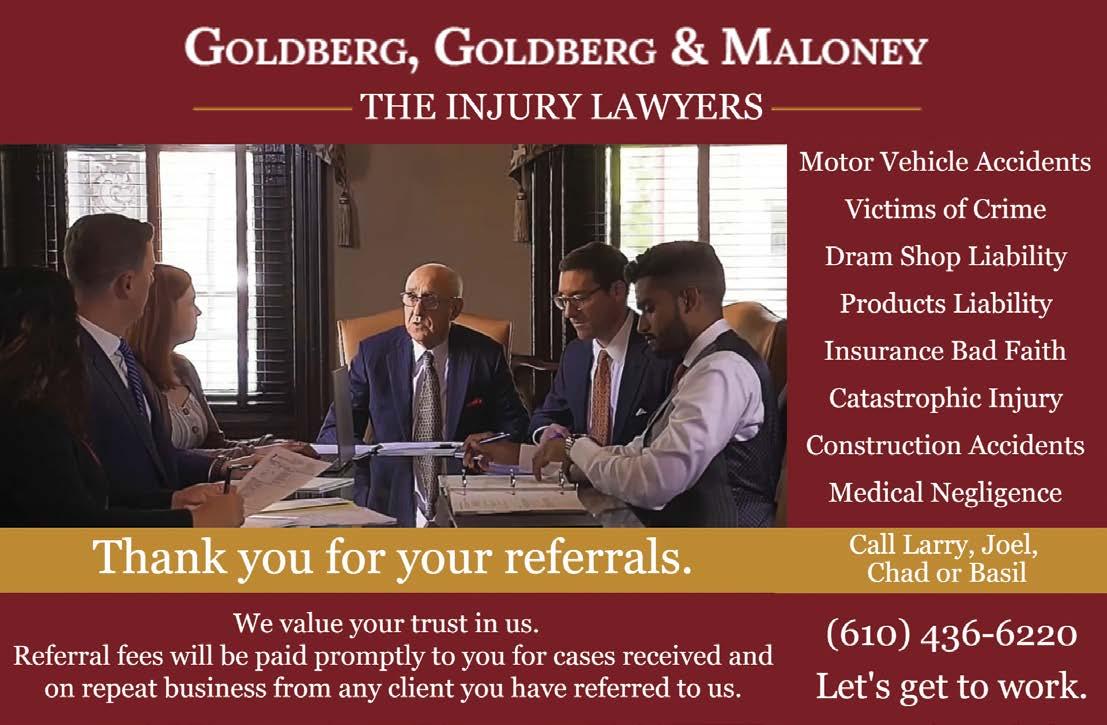


Director
Fallhas always been my favorite season, even though it is always my most hectic. This year is proving to be no exception on that front. We have had an incredibly busy schedule here at the Bar Association ever since Labor Day, and we plan to finish the year strong with more events still to come.
We had 167 folks attend our Fall Bench Bar down in Alexandria, Virginia at the end of September. To say it was a whirlwind is an understatement. Whether you sang your heart out during Karaoke (like Brian Nagle), danced the night away (like Michelle Bernardo-Rudy), screamed your head off during Trivia (like me), shopped until you dropped (like Marta Laynas), or took in the tranquility of Mount Vernon (like Liz Srinivasan), chances are you have some great memories of this action-packed weekend. If nothing else, hopefully you took the memory of the some of the Judges singing, “You can’t always get what you want” to us while wagging their fingers in a way we won’t soon forget.
Regardless, none of these good times could have occurred without the hard work of our CCBA staff (specifically Rachel Prince), the dedication and determination of Andrea Pettine, our Bench Bar Committee Chair, and the hard-working people at the Alexandria Hotel. A big thank you to all of our attendees and sponsors!
We have also celebrated our 2022 Membership Appreciation Week! Whether you showed us your pearly whites and big smile for Free Professional Headshot Day, stocked up on discounted movie tickets, or attended the free CLE/Happy Hour, we hope you had a good time. And for those who attended the Young Lawyers Division’s Quizzo Night, I know beyond a shadow of a doubt that you had a good time.
October wound down with a Pro Bono Reception that was graciously hosted by Judge Binder and Judge Sondergaard at Judge Binder’s lovely home. Thank you to Liz Srinivasan for all you did to make that night so special.
As we look forward to the last two months of the year, we hope to continue to have a number of great events for all of you. On Wednesday, November 9th we will have a Chester County Bar Foundation Fellows Event at align. Space across from the Historic Courthouse. On Friday, November 11th, we will host the biggest and best CCBA Veterans’ Day Event in the history of the organization. Jamie Goncharoff is spearheading the initiative to grow our attendance and enhance the program with
several neat surprises. Thursday, December 1st will be our Annual CCBA and CCBF All Members Meeting in Courtroom 1 of the Historic Courthouse. Please be sure to join us for the Memorial Service at 3:30 p.m. followed by the general meeting at 4:00 pm, which will be immediately followed by a reception. Don’t forget that we will be collecting Toys for Tots again this year. Our final event of the year will be the CCBA Holiday Happy Hour on Thursday, December 15th on the Second Floor of Side Bar and Restaurant.
I truly hope that you are able to make it out to as many of these events as possible!
As always, thank you for being part of our Chester County Bar Association community. Through your support we are blessed with the opportunity to make this little corner of the world a much better place.
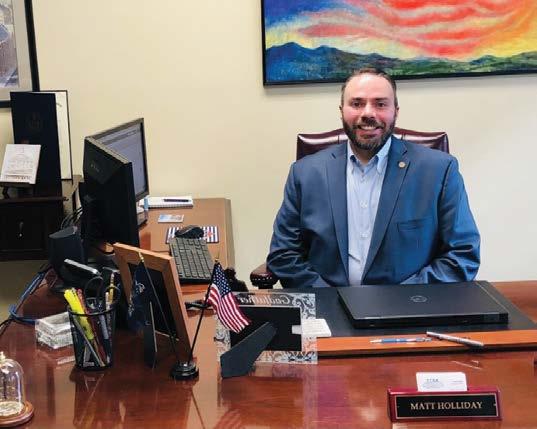

STACY WEST CLARK, ESQ., has been named by The Legal Intelligencer as the 2022 winner of the Lawyer/ Law Firm Business Development Coaching category in its annual BEST OF issue. She was also named by The Legal to its “Hall of Fame” for “Business Development Lawyer and Law Firm Coaching” and for “Public Relations and Marketing Firm.” President of Stacy Clark Marketing LLC, Stacy has been advising local law firms and lawyers for over 25 years on how to grow revenues and meet strategic goals. In addition to being a longtime CCBA member, she is a Fellow of the College of Law Practice Management and is a regular contributor of articles on law firm marketing subjects to the Legal Intelligencer
KAITLYN MACAULAY, ESQ., gets married! Kaitlyn is an Associate at Haggerty, Goldberg, Schleifer & Kupersmith, P.C. in their Workers’ Compensation Division. She and her now-husband Amir Abidov were married on April 30, 2022, at Aldie Mansion in Doylestown, PA.
STACEY L. FULLER, ESQ., Partner, Gawthrop Greenwood, Attorneys at Law, was one of three outstanding Chester County Women honored by the March of Dimes for her remarkable impact on business at the 33rd Annual March of Dimes Salute to Women of Achievement Awards.
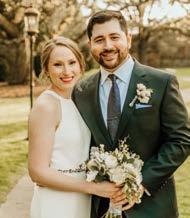

Thecase of Senator Gene Yaw, et al v. Delaware River Basin Commission, No. 21-2315 (3d Cir. September 16, 2022), was decided by a threejudge panel of the U.S. Court of Appeals for the Third Circuit (Judges Fuentes (writing for the panel), Restrepo and Roth). This case featured a challenge to regulations promulgated by the Delaware River Basin Commission (“DRBC”) that banned the practice of high-volume hydraulic fracturing (“fracking”) in the Delaware River Basin (“Basin”) as part of shale gas well development.
The case was dismissed, leaving the DRBC fracking ban regulations in place.

The back story is as follows. In February 2021, the DRBC promulgated a regulation prohibiting fracking associated with unconventional gas well development
on land within the DRBC’s jurisdiction. See, DRBC Resolution No. 2021-01. A temporary ban on fracking had been in place since 2010, pending the promulgation of formal rulemaking by the DRBC.
The DRBC was formed in 1961, and is an interstate compact between New York, Pennsylvania, New Jersey, and Delaware. The United States, through the Army Corps of Engineers, is also a member of the compact. An interstate compact is authorized by the Art. 1, Section 10, Clause 3 of the U.S. Constitution, and the DRBC was created to protect, allocate, and administer various water rights in the Basin.
The Basin encompasses 13,539 square miles of territory in New York, New Jersey, Pennsylvania, and Delaware, and includes the 782 square miles of the Delaware Bay. The Delaware River originates in the Catskill Mountains in New York and flows about 388 miles to the Delaware Bay, and then 31 more miles through the bay to where the Delaware River’s waters enter the Atlantic Ocean at Cape May, New Jersey and Cape Henlopen, Delaware.
Among other important benefits, the Delaware River Basin’s rivers, streams, tributaries, and groundwaters
supply drinking water to more than 13 million residents of the Basin. The jurisdiction of the DRBC is concurrent with other state and federal authorities over various environmental matters, including pollution discharge permitting and water withdrawals. Administrative agreements exist between the DRBC and the member states and federal government outlining how the various state and federal programs coordinate and cooperate.
While Pennsylvania has permitted fracking, both New York and New Jersey prohibit the technique. Delaware apparently has no shale gas deposits and therefore no fracking activity has been proposed (Maryland, although not a member of the DRBC, also has banned fracking as well). Fracking is a gas well development technique that fractures gas-bearing rock structures with proprietary fracking fluids pumped under high pressure and volumes into the underground. The fracturing of the gas-bearing rock zones facilitates the flow of gas into the gas well collection systems.
The fracking and gas well development process is controversial, and many critics argue that fracking causes serious water and air pollution, accelerates adverse climate change effects, and continues reliance on fossil fuels. Many supporters of fracking argue that shale gas development enhances national security, creates jobs, and creates wealth for municipalities and landowners. Fracking adherents also argue that the environmental contamination caused by fracking can be controlled.
While no shale gas development fracking has occurred in Chester County (there are no substantial shale gas deposits in the County), many County residents have been adversely affected by the construction of several pipelines designed, in part, to transport shale gas products. In the case of the controversial Mariner East Pipeline System, owned and operated by Energy Transfer, LP, problems with pollution caused by construction activities have garnered millions of dollars in civil penalties, as well as criminal convictions (the entity’s subsidiaries were convicted of environmental crimes, but curiously, no natural persons were charged with crimes or convicted). See, the Pa. Attorney General website at: https://www.attorneygeneral.gov/ taking-action/case-update-energy-transfer-convictedof-criminal-charges-related-to-construction-ofmariner-east-2-pipeline-revolution-pipeline-inpennsylvania/#:~:text=HARRISBURG%2C%20PA%20 %E2%80%94Attorney%20General%20Josh,two%20 major%20pipelines%20in%20Pennsylvania.
The DRBC rulemaking process regarding fracking was lengthy, with hundreds of witnesses presenting
testimony and thousands of comments submitted to the DRBC. The decision to ban fracking was underpinned by a finding of the DRBC that fracking “poses significant, immediate, and long-term risks to the development, conservation, utilization, management and preservation of the [Basin’s] water resources.” Slip Op. 4 (referring to Joint Appendix 0371).
The DRBC regulations promptly were challenged in federal district court in the Eastern District of Pennsylvania, and the case was heard by Judge Paul Diamond (see, Senator Gene Yaw, et al. No. 21-119.)

Judge Diamond ruled that the plaintiffs lacked standing and dismissed the case. Plaintiffs then appealed to the U.S. Court of Appeals for the Third Circuit.
The plaintiffs-appellants were comprised of several GOP state senators, the Pennsylvania Senate Republican Caucus, and several municipalities. Intervenors included the Delaware Riverkeeper Network, Senator Caroline Comitta, and Bucks and Montgomery Counties, among others.
The Third Circuit ruled that the state senators and Senate Republican Caucus lacked standing because the legislative injuries alleged by them affect the state legislature as a whole, and under established caselaw, “individual members lack standing to assert the institutional interests of a legislature.” Slip Op. 6. (citation omitted).
The court further ruled that none of the plaintiffappellant senators had standing as trustees of Pennsylvania’s public natural resources under the Art. 1, Sec. 27 of the Pennsylvania Constitution (also known as the Environmental Rights Amendment or “ERA”) because they were not ERA trustees, and “because the Commission’s ban on fracking has not cognizably harmed the trust.” Slip Op. 6.
Interestingly, the court ruled that the plaintiffappellant municipalities were, in fact, ERA trustees, but the municipalities did not articulate how the ban had injured them (the municipalities apparently passed on an opportunity to amend their complaint in order to allege injury sufficient to confer standing).
The ERA claims advanced by the plaintiffs-appellants are interesting, and the court described the main ERA claim as follows:
on
Plaintiffs-Appellants’ argument for standing under the ERA proceeds in two parts. First, they argue that because the Commonwealth’s trustee obligations extend to “all agencies and entities of the Commonwealth government, both statewide and local,” they are all trustees of Pennsylvania’s public natural resources under the ERA. Second, they argue that the Commission’s ban on fracking has harmed them in their roles as ERA trustees because it has “precluded [them] from exercising their constitutionally enshrined fiduciary obligations.”


Slip Op. 34 (footnotes omitted).
The court resolved the first leg of the argument by holding that, even if the plaintiff-appellants are assumed to be ERA trustees, they failed to demonstrate that the ban was causing, or would imminently cause, a concrete injury-in-fact. The Court further explained that plaintiffs-appellants could not demonstrate that the socalled interference with the management of the trust was a sufficient injury-in-fact: “But they fail to explain what, exactly, the ban is preventing them from doing.”
Slip Op. 35.
Finally, the plaintiff-appellants advanced one final argument. They alleged that the ban on fracking harms the ERA public trust because the ban served to decrease the receipt of fracking revenues in Pennsylvania (presumably they mean taxes, royalties, lease payments, sale of rights, etc.):
Plaintiff-Appellants thus allege that by reducing fracking revenues, the ban has “directly and substantially injured the Trust’s corpus.”

Slip Op. 36 (footnotes omitted).
The Court rejected this argument as follows:
Plaintiffs-Appellants are arguing that the ERA, a state constitutional amendment intended to protect Pennsylvania’s natural resources from exploitation by placing them in a public trust, actually “requires the liquidation of public natural resources for cash—that this actually improves the public trust.” We disagree. The problem with this argument is that it ignores the explicit purpose of the ERA and mistakes the unique public trust it created for a run-of-the-mill financial trust in which the trustees have a duty to maximize profits. The Supreme Court of Pennsylvania has explained that the
purpose of the public trust created by the ERA is not to make money; it is to “conserve and maintain” the state’s public natural resources. To promote this purpose, the ERA “imposes two basic duties on the Commonwealth as the trustee.” First, “the Commonwealth has a duty to prohibit the degradation, diminution, and depletion of [Pennsylvania’s] public natural resources, whether these harms might result from direct state action or from the actions of private parties.” Second, “the Commonwealth must act affirmatively via legislative action to protect the environment.”
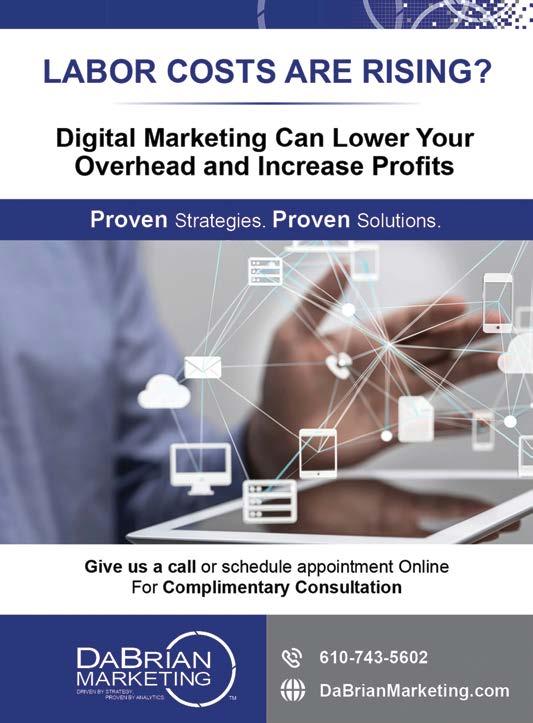
Slip Op. 37.
The court concluded with its take on the ERA:
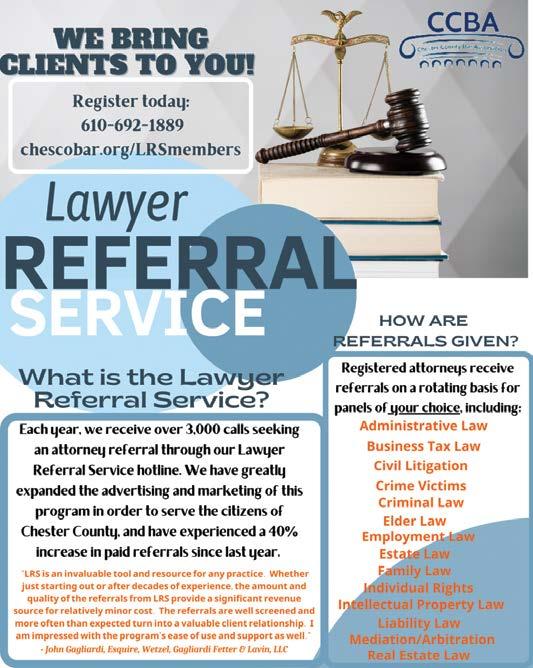
When the nature of the public trust created by the ERA is properly understood, it becomes clear that neither the trust nor its corpus is being concretely harmed by the Commission’s decision to ban fracking in the Basin. To the contrary, the ban promotes the purposes of the trust and protects its corpus by preventing Pennsylvania’s natural gas reserves, part of the Commonwealth’s “public natural resources,” from being depleted.
Slip Op. 38.
This interpretation by a Third Circuit panel seems to be in line with the seminal decision of the Pennsylvania Supreme Court in Pennsylvania Environmental Defense Foundation v. Commonwealth, 161 A. 3d 911 (Pa. 2017) (“PEDF”). The PEDF decision stands for the proposition that every level of Commonwealth government (including municipalities) has duties and responsibilities under the ERA and the public trust established by the ERA. However, it is my view that we still (after over 40 years since enactment of the ERA!) do not have a clear idea about how far those responsibilities extend.

Atthe Community Foundation, we receive this bittersweet phone call all too often: “I have a client who wants to leave a large portion of their estate assets to XYZ charity. I’m wary because I heard that this charity isn’t doing so well. Can you help us figure this out? We want to promote philanthropy but not this specific charity. What do you know about this charity? What should I tell my client?”
When your clients have charitable intent, how can you help guide them to nonprofit charities that will use their gifts wisely? How can you discern legitimate charities that do cost-effective, impactful, good work?

Due diligence has two levels. The first level is merely compliance: Is the charity registered properly?
The second level is performance: Does the charity’s work make a significant positive difference?
Take advantage of online tools. Start at charitynavigator. org, where you’ll find information on more than 5,500 charities. Even more revealing, on guidestar.org you can find the IRS Form 990 for more than 1.9 million U.S. nonprofit organizations. This discloses how much of a nonprofit charity’s budget goes to programs and services vs fundraising and administration; whether the nonprofit updates its conflict of interest disclosures; salaries of highly compensated employees; and financial trends over time. Keep in mind, due diligence is an art and a science. Smart giving, or engaged philanthropy, goes hand in hand with due diligence. Let’s hear from attorneys who serve on the Board of the Community Foundation:
For Elizabeth Zwaan Milne, Esq., and her family, giving to charity has always been a community effort. “My family established the Brian C. Zwaan Legacy Fund to continue my father’s passion for education. We support Philadelphia area nonprofits that focus on propelling young minds forward. We host the Brian C. Zwaan Legacy Fund Golf Classic & Reception to raise money for the fund which we, in turn, grant out to worthwhile charitable organizations. Teaming up with friends, family, co-workers, and neighbors for large scale events makes it possible to donate larger sums to multiple charities. And when we all come together to reminisce about my father and celebrate his legacy, I feel such a strong connection to and appreciation for the community around me.”
Maybe you have stocks that you’ve owned for 30 years, artwork that you’ve outgrown, or a collection of Star Wars memorabilia gathering dust in the attic. Donating appreciated assets like these can help you and your favorite cause.
John McKenna, Esq., of MacElree Harvey expands, “Say a stock you bought for $10,000 two decades ago is worth $40,000 today. Give it to charity and not only can you avoid paying a 15% tax on your long-term capital gains of

$30,000, but you can also deduct the full $40,000 on your taxes. The tax rules are less favorable for art and collectibles. You can always deduct the amount you paid, but you can’t write off the full market value of artwork unless the charity is using it for art-related purposes (in other words, hanging it in a museum) and the art must be professionally appraised.”
If you want your Star Wars collectibles to become a force for good, sell them through eBay for Charity https:// www.charity.ebay.com/, which donates sale proceeds to one of 85,000 charities. These are just some examples of how clients can give highly appreciated assets.
“Remember the 1950’s hit TV series, The Millionaire…where his indulgence was to give $1 million apiece to people he had never met? I’m so energized when my clients want to give away their hard-earned money to good charities,” enthuses L. Peter Temple, Esq., of Larmore Scarlett


in Kennett Square. “You don’t have to be a Rockefeller to be generous. Starting a private foundation is an option. We also urge clients to consider donor-advised funds, commercial or nonprofit. We have found that clients get high levels of customized philanthropy services from community foundations, which know the regional community issues inside and out.”

“Values are the principles and enduring ideals that give our lives meaning. Our values are even more important that our goals, because we might not reach our goals, but we can always choose to live by our values. Values help determine career choice, work/life balance, life transitions. In philanthropy, it’s crucial to clarify your values, and find nonprofits that can be trusted to help carry them forward,” explains Emily Temple Abels, Esq., an associate attorney at Larmore Scarlett. Volunteering with charities helps, and down the line, giving time and money.
“Serving on the Board of nonprofits is one way I donate my time to the charitable causes that matter the most to me,” says Denise Antonelli, Esq., of Gawthrop Greenwood. “Start on a committee, and then decide if it’s the right nonprofit for Board service. Dependable, passionate Board members strengthen the nonprofits they support. Board members give their time, their expertise, and they also give their money. In the long run, Board members also make major gifts and legacy gifts to the nonprofits they’ve been committed to throughout their lives.”

Your local community foundation is a fount of information on community needs and the local, regional, and national charities best-positioned to meet those needs. The Chester County Community Foundation urges donors to give wisely and generously. Strategic, planned donations can significantly increase the benefits and impact of gifts for years to come.
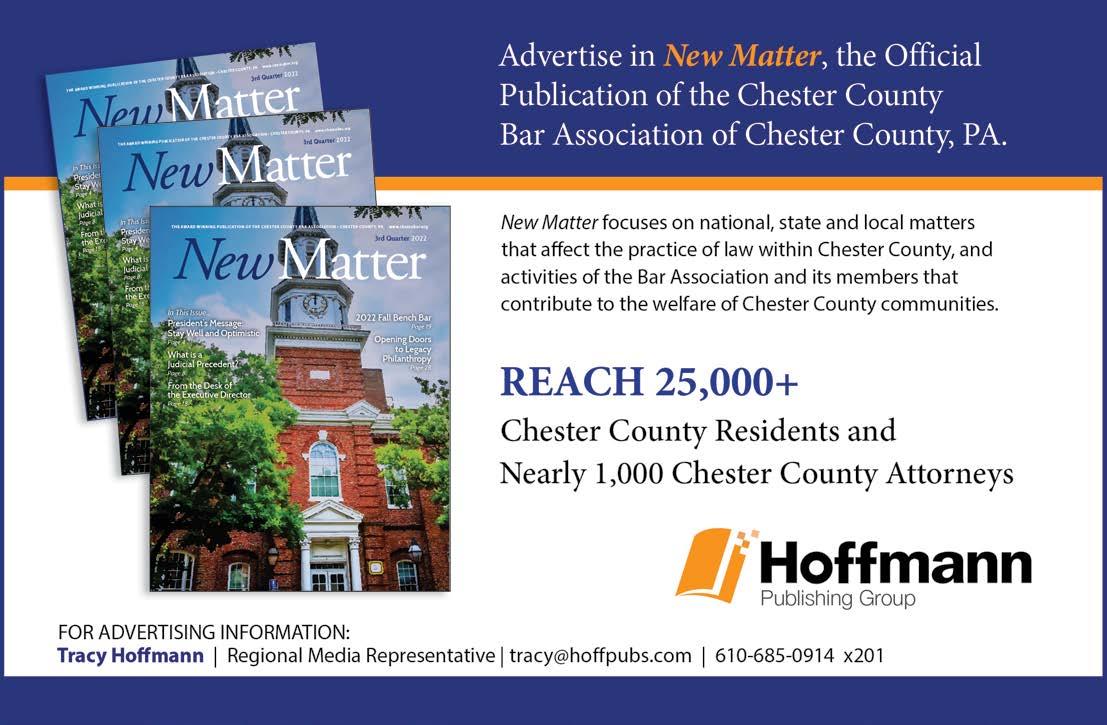
Visit www.chescocf.org to learn more about how the Chester County Community Foundation connects people who care with causes that matter, so their legacy makes a difference, now and forever.

Winnie Sebastian, Esq., Board Chair Karen Simmons, President/CEO Jason Arbacheski, CAP, Director of Gift Planning and Stewardship
Chester County Community Foundation 28 West Market Street, West Chester, PA 19382 (610) 696-8211 | info@chescocf.org | www.chescocf.org


Every day at Legal Aid of Southeastern Pennsylvania, the attorneys and staff strive to uphold our core values of “equal justice for all.” While it is a lofty goal, it would be unattainable without the compassionate support of our pro bono and Access to Justice community, who generously provide their services to low-income residents of Chester County.
Pro bono volunteers identify and bridge the gaps in service delivery to needy communities and supplement Legal Aid services with their particular knowledge and expertise.
• Kristin A. Molavoque, Esq., a family law solo practitioner, trained Legal Aid staff about Special Immigrant Juvenile Status (“SIJS”), an immigration benefit conferred to abused, neglected, or abandoned children. These children cannot be reunited with their parents, or return to their country of origin or parents’ residences, and the benefit is obtained once a requisite state court order is issued. When Legal Aid filed its first SIJS custody case, Kristin provided substantial guidance throughout the drafting, filing, and hearing process. She has offered to provide assistance in future cases, as needed. She has also graciously updated Legal Aid staff on pertinent developments in the law and included attorneys in calls with other SIJS practitioners.
• Megan Halter, Esq., an education law attorney at Reger, Rizzo & Darnall LLP, supported Legal Aid in our representation of a client involved in a minor guardianship case. The child became homeless after losing both parents and was displaced out of county with a relative. The child previously received significant educational support for special needs, which were threatened as a result. Megan along with the district’s solicitor worked to ensure the district would continue services and allow the minor to continue attending school virtually, removing a significant burden facing the entire family.
• Shannon McDonald, Esq., an appeals and defense attorney, who also regularly serves as a Guardian ad Litem for children involved in the court system, presented to Legal Aid staff regarding juvenile private dependency petitions. Private dependency allows a private party concerned about the wellbeing of a child to commence actions under the Child Protective Services Law. This allows Children, Youth & Families to provides services to children and families, to ensure children have safe and permanent homes. In addition to volunteering to help clients involved in this process, Shannon’s advice has proved invaluable as we begin to bring these matters before the court. Shannon’s contributions will help ensure the best interests of all children in Chester County are effectively represented through the filing of these petitions.
Legal Aid thanks Kristin, Megan, Shannon, and all of our generous volunteers, for their time and dedication to serving vulnerable Chester County residents. If you are interested in volunteering, please contact Legal Aid’s Pro Bono Coordinator, Brian Doyle (bdoyle@lasp.org).
the
Bar can Provide Invaluable
to
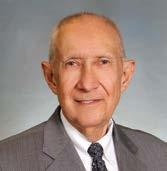
This is an article about a phrase that has been mentioned recently in some news articles and by commentators in the media. If you are a fan of history you may think that it comes from some written document or book. I then heard a similar version of the phrase expressed as a "New World Order". All of the phrases sounded a bit like the World Order from George Orwell's “1984.”
So the first thing I decided to do is to see more about George. As it turns out, George Orwell was not his real name. It was his pen name. “Eric Arthur Blair (25 June 1903 - 21 January 1950), better known by his pen name George Orwell, was an English novelist, essayist, journalist, and critic.” (https://en.wikipedia.org/wiki/George_Orwell).
This got even more interesting as I read about the "1984" book. (https://en.wikipedia.org/wiki/Nineteen_EightyFour). It seems that the term "New World Order" turns up in a link that goes to a wiki entry called "New_World_Order_ (conspiracy_theory)". [See https://en.wikipedia.org/wiki/
So the use of the NWO turns out to be a conspiracy theory that aims at taking over the government of a nation. I even decided on using my expensive advisor, Siri, to get an answer. She advised me that there is a current book selling entitled “Rise of the New World Order, The Culling of Man,” by J. Micha-el1 Thomas Hays. I decided not to order the book but thought that this topic will get hotter as more use of the term emanates through the media.
Rather than deal with opinions and comments of the media, I decided to see about where there was a possibility of the United States being consolidated into a NWO. And there it was, right in front of me. Anything that our government does when it turns over the Constitution of the United States to a foreign country or even a nongovernment agency. In other words, when we are not a unique country that “We the People” run but some other country or organization takes over.
There is one United States Supreme Court (USSC) case that addresses this concept in more detail than you think possible. In Medellin v. Texas, 554 U.S. 759; 129 S. Ct. 360, (2008), the court was faced with one of the more complex
1This is the accurate spelling of his name.

legal issues that could surface – who oversees the judicial system in the United States of America, our courts or that of Mexico or the World Court? [See earlier report of Medellin v. Texas, 552 U.S. 491, 567; 128 S. Ct. 1346, 1392 (2008)].
I discovered the Medellin case in a book entitled "One Vote Away. How a Single Supreme Court Seat Can Change History," by Senator Rafael Edward “Ted”2 Cruz (R) from Texas. He devotes an entire chapter of his book, Chapter 4, to Sovereignty and Medellin v. Texas, pp. 63-90. He begins the story as follows:
“One hot, muggy summer evening, June 24, 1993, two teenage girls in Houston, Texas, were walking home and decided to take a shortcut. Around 11:15 p.m., they encountered the “Black and Whites Gang,” who had assembled to initiate a new member. As the girls walked past, José Ernesto Medellin and his fellow gang members grabbed them, assaulted them, brutally raped them, and then murdered them both.” (Page 66 of his book above)
Chief Justice Roberts delivered the opinion of the Court.
“The International Court of Justice (ICJ), located in the Hague, is a tribunal established pursuant to the United Nations Charter to adjudicate disputes between member states. In the Case Concerning Avena and Other Mexican Nationals (Mex. v. U.S.), 2004 I. C. J. 12 (Judgment of Mar. 31) (Avena), that tribunal considered a claim brought by Mexico against the United States. The ICJ held that, based on violations of the Vienna Convention, 51 named Mexican nationals were entitled to review and reconsideration of their state-court convictions and sentences in the United States. This was so regardless of any forfeiture of the right to raise Vienna Convention claims because of a failure to comply with generally applicable state rules governing challenges to criminal convictions.
In Sanchez-Llamas v. Oregon, 548 U.S. 331, 126 S. Ct. 2669, 165 L. Ed. 2d 557 (2006)—issued after Avena but involving individuals who were not named in the Avena judgment—we held that, contrary to the ICJ's determination, the Vienna Convention did not preclude the application of state default rules. After the Avena decision, President George W. Bush determined, through a Memorandum for the Attorney General (Feb. 28, 2005), App. to Pet. for Cert. 187a (Memorandum or President's Memorandum), that the United States would “discharge its international obligations” under Avena "by having State courts give effect to the decision."
Petitioner Jose Ernesto Medellin, who had been convicted and sentenced in Texas state court for murder, is one of the 51 Mexican nationals named in the Avena decision. Relying on the ICJ's decision and the President’s Memorandum, Medellin filed an application for a writ of habeas corpus in state court. The Texas Court of Criminal Appeals dismissed Medellin's application as an abuse of the writ under state law, given Medellin’s failure to raise his Vienna Convention claim in a timely manner under state law. We granted
certiorari to decide two questions. First, is the ICJ’s judgment in Avena directly enforceable as domestic law in a state court in the United States? Second, does the President's Memorandum independently require the States to provide review and reconsideration of the claims of the 51 Mexican nationals named in Avena without regard to state procedural default rules? We conclude that neither Avena nor the President's Memorandum constitutes directly enforceable federal law that pre-empts state limitations on the filing of successive habeas petitions. We therefore affirm the decision below.” [See Medellin v. Texas, 552 U.S. 491, 497; 128 S. Ct. 1346, 1352 (2008)].
For those who like to read, there are a total of 84 pages to the above decision. The (USSC) addressed some of the history of the various courts and treaties that the United States has entered. However, the decision reflects that the United States is still an independent nation whose laws cannot be preempted by the laws of any other jurisdiction unless it has legal application of that law.
"The judicial Power shall extend to all Cases, in Law and Equity, arising under this Constitution, the Laws of the United States, and Treaties made, or which shall be made, under their Authority;—to all Cases affecting Ambassadors, other public Ministers and Consuls;—to all Cases of admiralty and maritime Jurisdiction;—to Controversies to which the United States shall be a Party;—to Controversies between two or more States;— between a State and Citizens of another State;—between Citizens of different States,--between Citizens of the same State claiming Lands under Grants of different States, and between a State, or the Citizens thereof, and foreign States, Citizens or Subjects.” (See U.S. Const. art. 3, § 2, Cl 1. Subjects of jurisdiction).
The litigation also includes the argument that the President of the United States is allowed to somehow make his/her own law by some form of memorandum or other unilateral action. Just because the Executive Branch signs an Executive Order does not mean that it will be enforceable on the citizens of our nation.
“The President’s authority to act, as with the exercise of any governmental power, “must stem either from an act of Congress or from the Constitution itself.” Youngstown, supra, at 585, 72 S. Ct. 863, 96 L. Ed. 1153, 62 Ohio Law Abs. 417; Dames & Moore v. Regan, 453 U.S. 654, 668, 101 S. Ct. 2972, 69 L. Ed. 2d 918 (1981).” [See Medellin v. Texas, 552 U.S. 491, 524; 128 S. Ct. 1346, 1368 (2008)].
The court addresses several areas where the President can or cannot have enforceable actions of law. The court concentrates on the limits of the President's authority to make a law without congressional approval.
2Regnery Publishing, Washington, D.C. 2000, 2020.
Continued from page 29

“The President has an array of political and diplomatic means available to enforce international obligations, but unilaterally converting a non-self-executing treaty into a self-executing one is not among them. The responsibility for transforming an international obligation arising from a non-self-executing treaty into domestic law falls to Congress. Foster, 27 U.S. 253, 2 Pet., at 315, 7 L. Ed. 415; Whitney, 124 U.S., at 194, 8 S. Ct. 456, 31 L. Ed. 386; IgartuaDe La Rosa, 417 F.3d at 150. As this Court has explained, when treaty stipulations are "not self-executing they can only be enforced pursuant to legislation to carry them into effect.” Whitney, supra, at 194, 8 S. Ct. 456, 31 L. Ed. 386. Moreover, “[u]ntil such act shall be passed, the Court is not at liberty to disregard the existing laws on the subject.” Foster, 27 U.S. 253, 2 Pet., at 315, 7 L. Ed. 415.” [See Medellin v. Texas, 552 U.S. 491, 525; 128 S. Ct. 1346, 1368 (2008)].
Since there were multiple petitioners/appellants the court responded to some of the information provided in their briefs. Not all arguments made it past the court. The final paragraph of the court's decision is an example.
“Medellin argues that the President’s Memorandum is a valid exercise of his “[T]ake Care” power. Brief for Petitioner 28. The United States, however, does not rely upon the President’s responsibility to “take Care that the Laws be faithfully executed.” U.S. Const., Art. II, § 3. We think this a wise concession. This authority allows the President to execute the laws, not make them. For the reasons we have stated, the Avena judgment is not domestic law; accordingly, the President cannot rely on his Take Care powers here.
The judgment of the Texas Court of Criminal Appeals is affirmed. It is so ordered." [See Medellin v. Texas, 552 U.S. 491, 532; 128 S. Ct. 1346, 1372 (2008)].
Although the Medellin case addressed many issues concerning the autonomy of the United States and its laws, there is an important issue that many people forget. The access to and protection of our laws starts with the United States Constitution. A word search of that document gives a very brief list of the requirement to be a citizen.
“Sec. 2, Cl 2. Qualifications of Representatives.
No person shall be a Representative who shall not have attained to the Age of twenty-five years and been seven Years a Citizen of the United States, and who shall not, when elected, be an Inhabitant of that State in which he shall be chosen.” (U.S. Const. Art. I, § 2, Cl 2)
“Sec. 3, Cl 3. Qualifications of Senators.
No Person shall be a Senator who shall not have attained to the Age of thirty Years and been nine Years a Citizen of the United States, and who shall not, when elected, be an Inhabitant of that State for which he shall be chosen.”
(U.S. Const. Art. I, § 3, Cl 3)
“Sec. 1, Cl 5. Eligibility for office of President.
No Person except a natural born Citizen, or a Citizen of the United States, at the time of the Adoption of this Constitution, shall be eligible to the Office of President; neither shall any Person be eligible to that Office who shall not have attained to the Age of thirty-five Years, and been fourteen Years a Resident within the United States.” (USCS Const. Art. II, § 1, Cl 5)3
“Sec. 2, Cl 1. Subjects of jurisdiction.” (Previously cited above. U.S. Const. Art. III, § 2, Cl 1)
“Sec. 2, Cl 1. Privileges and immunities of citizens.
The Citizens of each State shall be entitled to all Privileges and Immunities of Citizens in the several States.” (U.S. Const. Art. IV, § 2, Cl 1)
The United States celebrates many holidays for a variety of reasons. There are many things that are taught in our schools and at home to our future leaders. Just taking some time to read our Constitution may be worth the effort to make some sense out of why we should all appreciate our great country.
3Notice there is also a residency requirement.

Where do you live?
I live in West Chester Borough with my wife and my five children.
What is your favorite way to spend your free time?
Hanging out with my wife.
Who is the person you are most interested in meeting?

Winston Churchill
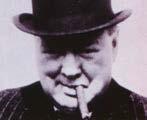
What was the last book you read? 1984

What is your greatest extravagance?

Our new kitchen!
What is your favorite TV Show? Planet Earth
What goals do you still have that you have not achieved yet? Wow, that’s a long list. I’ll get back to you once I narrow it down.
What is your favorite website? Wordle – one a day keeps the doctor away.

What was your first job?
I started training and working as a painter when I was twelve. I painted houses in the summer and whenever I was off from school for about 8 years. Does that count?

What word best describes you? Determined.
Where would we find you on a Saturday afternoon?
Almost certainly at a sporting event or concert or similar event for one of my children.
What is your favorite vacation destination?

That’s a tough one. Key West or any national park.
What is a little-known fact about you? I graduated from Catholic University with a bachelor’s degree in Archaeology.

What is something people would be surprised to hear about you?
I do not like to ride rollercoasters because they scare me. Although, I really enjoyed Cosmo Spacely’s Spockets Rockets at Six Flags Great America – it’s designed for little kids.

What is your favorite food? Italian

What would you be if you were not a lawyer? A cyclist
What is your favorite thing about the bar association? Enjoying and maintaining the comradery and the collegiality that our Association inspires. I also believe that the history and the lessons learned over time by those who came before us in our profession is paramount to our future success.


